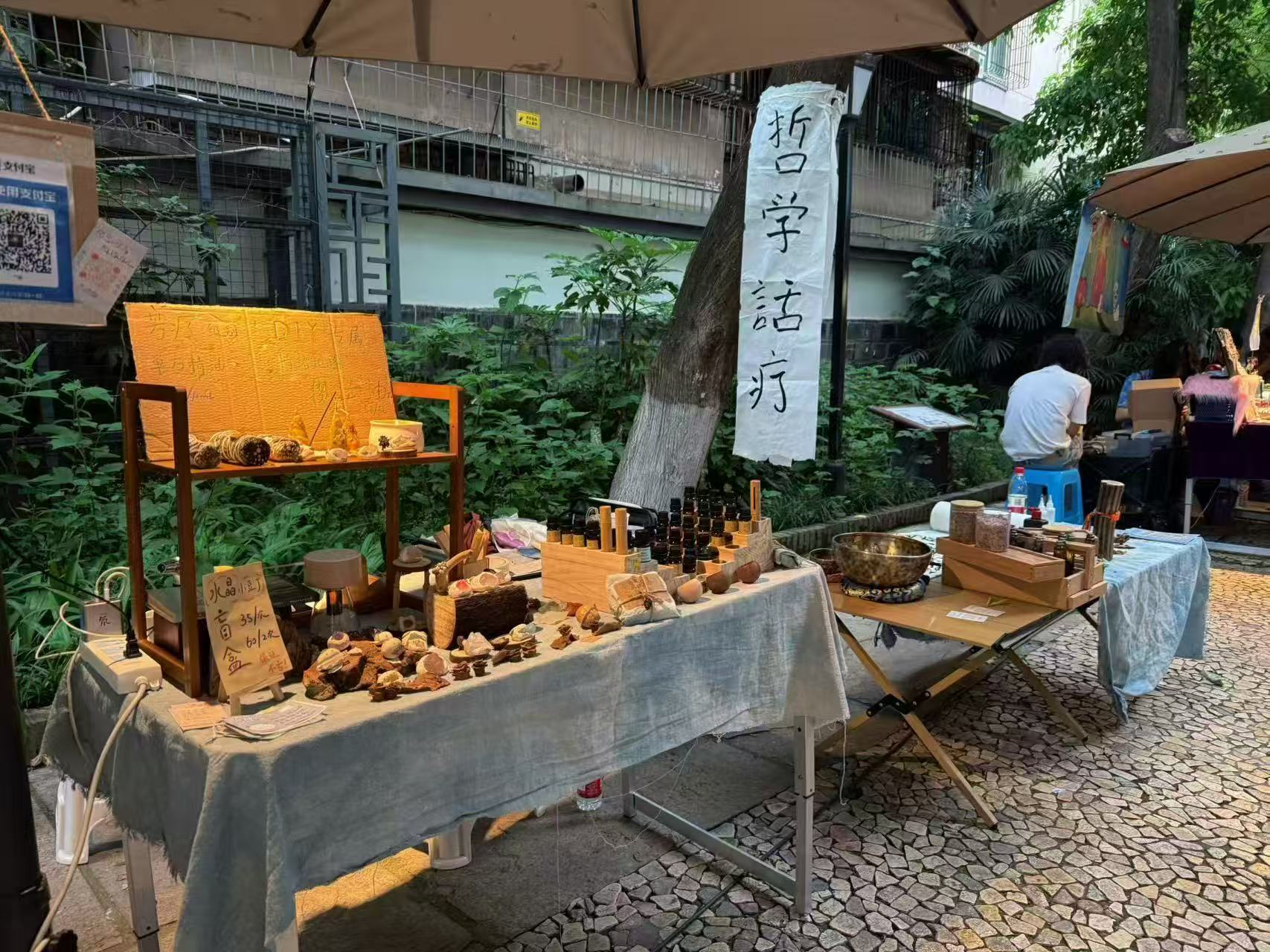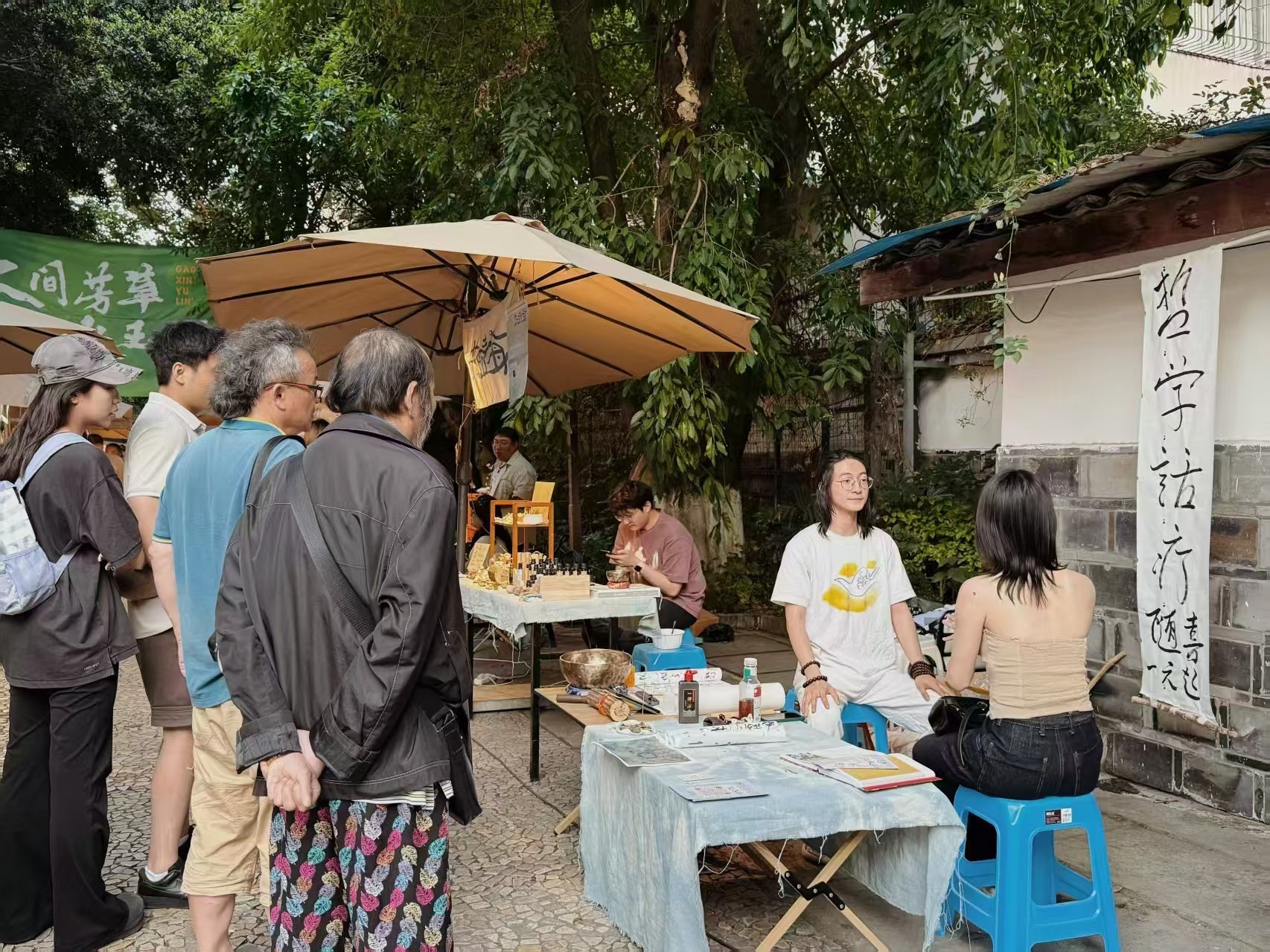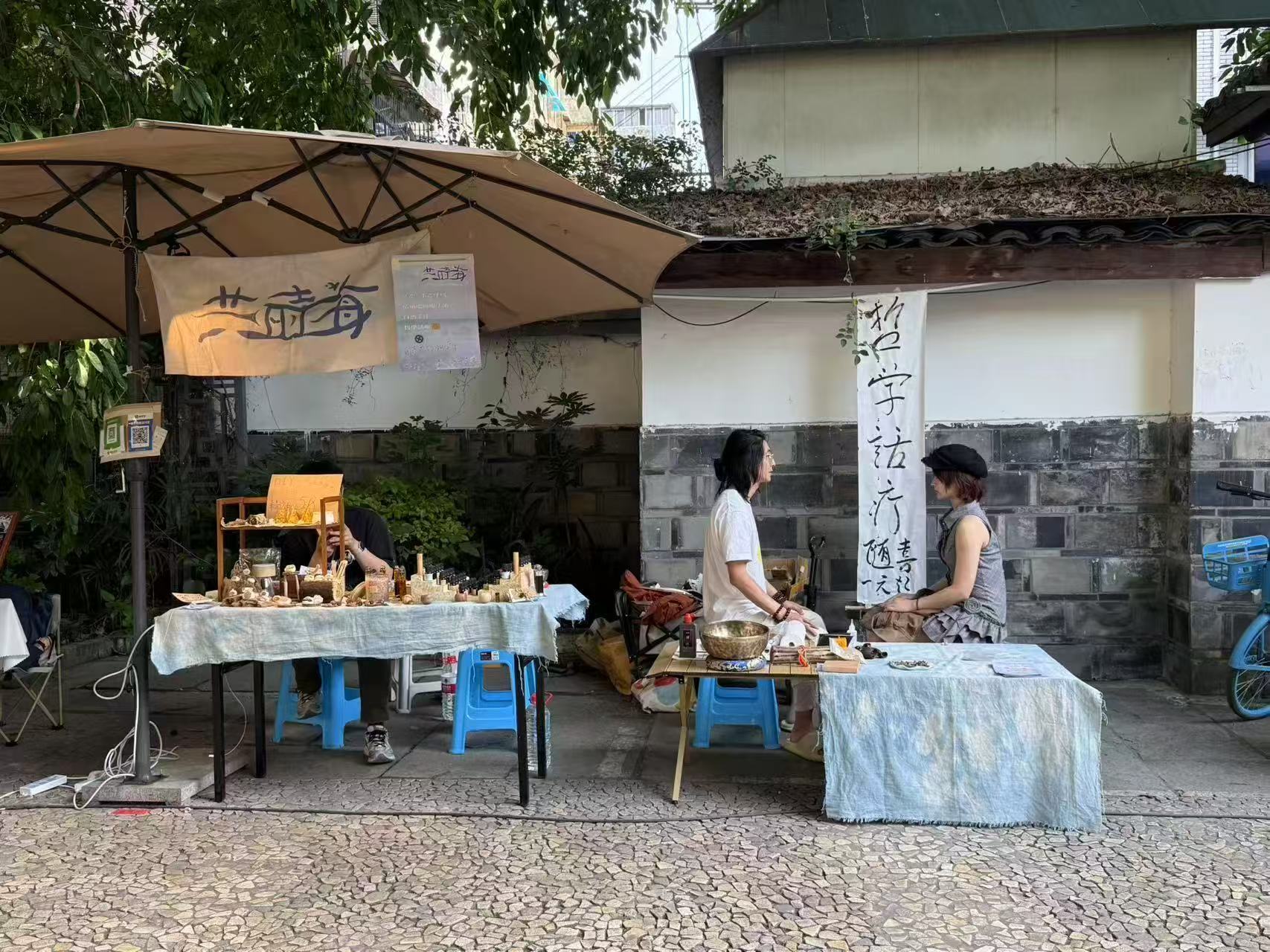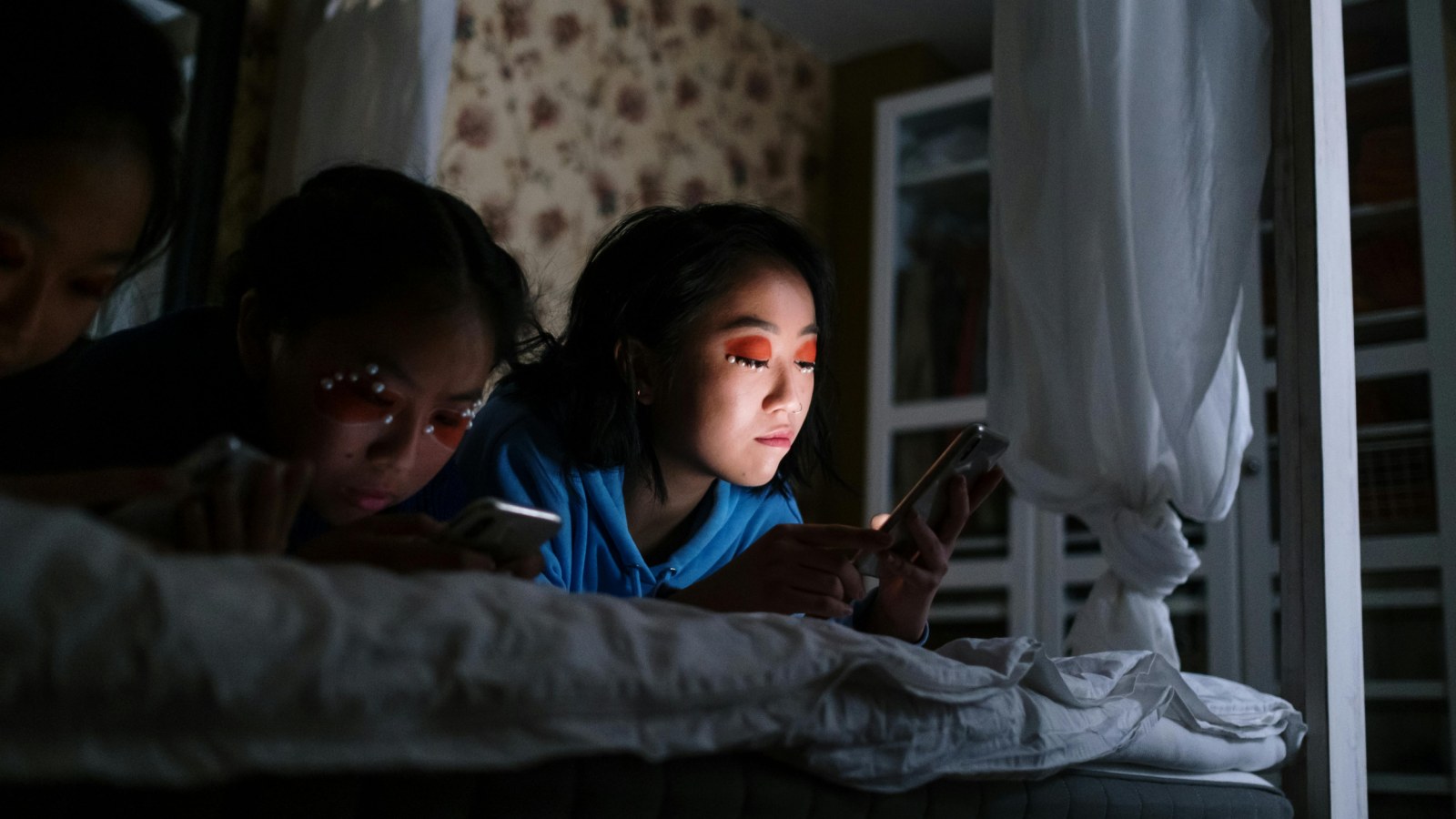So far, every weekend this month, in the lively Huoshaoyan market in Chengdu, a small but striking stall draws a steady crowd. Decorated with traditional Chinese elements, the booth features a handwritten sign in calligraphy that reads “Philosophical Conversation Therapy.” Seated beside it is a young man offering something unique: not therapy, not fortune-telling, but open-ended philosophical dialogue.
This unconventional stall has become a new format for sharing ways to cope with personal dilemmas. According to its creator from the creative collective Gongshihai, the conversations vary widely. Most visitors stop by for a ten-minute session to talk about personal struggles or emotional confusion. Topics often extend beyond the usual concerns, such as rigid thought patterns, the numbing effect of mass entertainment, or daily life frustrations. Some bring up more complex issues like sudden disconnection in intimate relationships, the link between self-care and meaningful action, or even reflections on death following the recent loss of a pet.

What the stall offers is not answers, but perspective. As the host explains, his background in philosophy helps both himself and visitors trace the underlying structure of their thoughts. He believes that understanding how rational thinking works—and knowing its limitations—is essential. In his words, “Rationality helps us think, but it shouldn’t trap us in rigid knowledge systems. Philosophical conversation therapy is about dissolving the anxieties that arise from misusing reason, and living a life guided by the pursuit of truth tends to lead to happiness.”
As the guide in these conversations, he emphasizes that the core of this practice is awakening awareness, or jue zhi (觉知), and integrating it into daily life. Compared to other self-help methods popular among young people, such as tarot or astrology, this approach doesn’t predict the future. Instead, it teaches a way of thinking that can be applied across any stage of life. It’s less about answers, more about opening the door to conscious reflection.

Whether or not it counts as a form of official therapy, this philosophical stall has become a hit among Chengdu residents. In a landscape where people often turn to psychological counseling, career changes, or spiritual retreats to deal with stress, “philosophical conversation therapy” presents a fresh alternative. It may not work for everyone, but it offers an intriguing mindset shift and a reminder that, sometimes, asking better questions is more powerful than finding quick answers.
Cover image and all photos via Gongshihai.


















